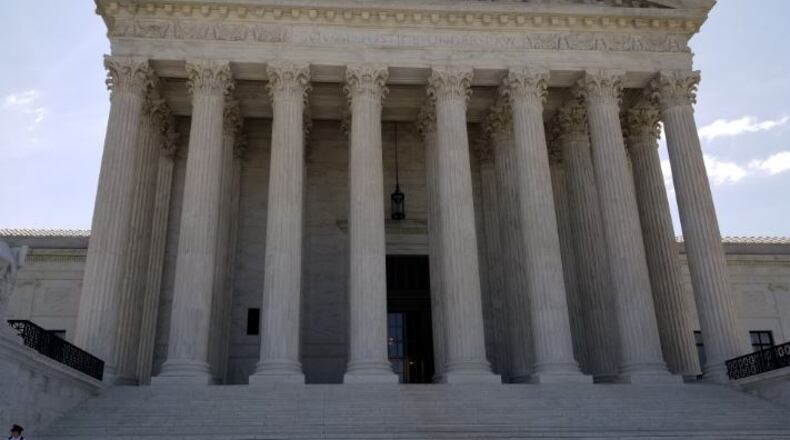In an election year setback for President Donald Trump, the U.S. Supreme Court blocked his efforts to do away with the DACA program for younger illegal immigrant "Dreamers," ruling that the Trump Administration did not properly follow federal laws in moving to end the program, but clearly leaving the door open for future changes.
"We do not decide whether DACA or its rescission are sound policies," Chief Justice John Roberts wrote for the Court. "'The wisdom' of those decisions 'is none of our concern.'"
"We address only whether the agency complied with the procedural requirement that it provide a reasoned explanation for its action," the Chief Justice added.
It was yet another example of where the courts had blocked efforts by the Trump Administration to change various federal rules - simply because officials had not followed the letter of the Administrative Procedure Act, which says such changes cannot be 'arbitrary and capricious.'
And that specific line was front and center in this DACA decision.
"DHS's decision to rescind DACA was arbitrary and capricious under the APA," the Supreme Court ruling stated.
"It's not that Chief Justice Roberts is a closet progressive," University of Texas law professor Steve Vladeck said. "It's that the Trump administration is *really bad* at administrative law."
In Congress, Democrats celebrated, and most Republicans bemoaned the decision.
"This decision is an essential step toward justice and opportunity for Dreamers," said Sen. Tina Smith (D-MN).
"Today the U.S. Supreme Court took a significant step toward validating the right of Dreamers to continue to live, work, learn, and contribute to their communities right here in the United States, their home," said Sen. Jacky Rosen (D-NV).
"Today’s Supreme Court decision provides much-needed certainty for those living in the United States under the Deferred Action for Childhood Arrivals program," said Rep. Fred Upton (R-MI), one of the few GOP lawmakers to praise the ruling. "It is the right thing to do - period."
"If President Obama could create it, President Trump can end it," argued Rep. Paul Gosar (R-AZ), who called it a, 'Disappointing ruling with a double standard.'
The DACA decision was like one almost a year earlier, where the U.S. Supreme Court blocked an effort by President Trump to add a citizenship question to the Census - not because the question was wrong, but because the administrative arguments provided by federal officials had been 'contrived.'
"We are presented, in other words, with an explanation for agency action that is incongruent with what the record reveals about the agency’s priorities and decision making process," the Chief Justice wrote in 2019.
In March of 2019, the Washington Post found that the Trump Administration had already lost over 60 court cases in a similar fashion on changes in federal rules, where courts had found the APA law had been violated.
Unlike in the Census case - where the White House had no extra time to try again on the citizenship question - this ruling does not block the Trump Administration from trying again to get rid of DACA.
About the Author
The Latest
Featured



